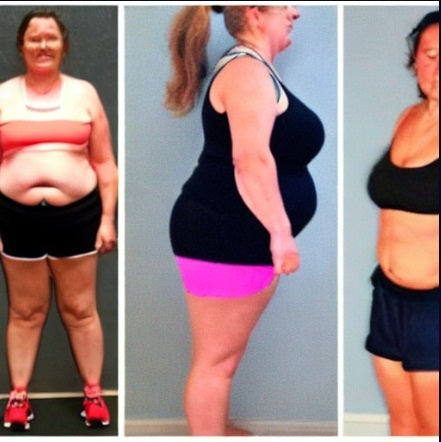
How would you Address Age-Specific Weight Loss Challenge
Share
Addressing weight loss challenges for individuals aged 40 and above requires consideration of age-specific factors that may impact metabolism, lifestyle, and overall health. Here are some strategies tailored to this demographic:
1. Metabolic Changes: Metabolism tends to slow down with age, making weight loss more challenging. Focus on maintaining muscle mass through strength training exercises, as muscle helps burn more calories at rest.
Contact us to get tailored recommendations for Strength training exercises
2. Hormonal Changes: Hormonal fluctuations, particularly in women during menopause, can affect weight distribution and metabolism. Consider consulting a healthcare provider for personalized advice and potential hormone therapy options.
Check our Calories and protein Calculator for personal recommendations.
Then, contact us for your specific daily meal plan
3. Health Conditions: Age-related health conditions such as diabetes, hypertension, and arthritis may impact exercise tolerance and dietary requirements. Work with healthcare professionals to develop a weight loss plan that addresses any underlying medical conditions.
Contact us for your specific weight loss plan
4. Nutrient Needs: Nutrient requirements may change with age, particularly for bone health (calcium and vitamin D) and heart health (fiber, omega-3 fatty acids). Ensure a balanced diet rich in fruits, vegetables, lean proteins, and whole grains to meet nutritional needs while managing calorie intake.
5. Joint Health: Joint pain and stiffness may limit mobility and exercise options. Choose low-impact activities such as swimming, cycling, or walking, and incorporate flexibility and mobility exercises to improve joint health and reduce discomfort.
6. Sleep Quality: Poor sleep quality is common in older adults and can impact weight management. Prioritize sleep hygiene practices such as maintaining a consistent sleep schedule, creating a comfortable sleep environment, and practicing relaxation techniques before bed.
We recommend the Night Mode Chamomile and Peach for better sleep.
7. Stress Management: Older adults may face increased stress due to career transitions, caregiving responsibilities, or other life changes. Explore stress-reducing activities such as meditation, yoga, or hobbies to manage stress levels and prevent emotional eating.
8. Social Support: Engage with peers, friends, or support groups to share experiences, challenges, and successes related to weight loss. Social support can provide motivation, accountability, and encouragement throughout the journey.
9. Behavioral Strategies: Adopt behavioral strategies such as mindful eating, portion control, and keeping a food journal to increase awareness of eating habits and promote healthier choices.
10. Gradual Changes: Aim for gradual and sustainable changes rather than quick fixes or extreme diets. Small, consistent lifestyle modifications are more likely to lead to long-term success and weight maintenance.
11. Celebrate Non-Scale Victories: Recognize and celebrate achievements beyond the number on the scale, such as increased energy levels, improved mobility, or better overall health markers.
By addressing age-specific challenges and tailoring interventions to individual needs, older adults can achieve successful and sustainable weight loss outcomes while prioritizing overall health and well-being.
